The long narrow streets of Chinatown are replete with ethnic picturesque shophouses that were built long ago, housing people from many Chinese dialect groups. Much development has been done to the area since 1843, and although many of the streets have completely undergone a makeover, you can still spot the little bits and pieces of history here and there. Amongst all the constant barrage of new openings in and around the area, you can still spot some of the more traditional ones, like these five that have been there for more than 50 years. We speak to them about how they began, the challenges they’re facing, and the future of their businesses.
Tong Heng (along South Bridge Road)
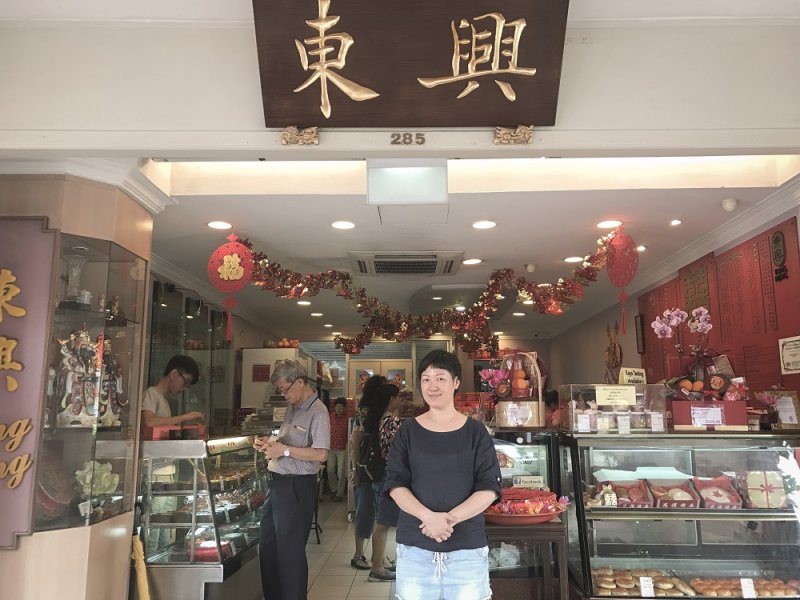
Founded in: 1920s
What they do: Ask any older person about Tong Heng and they’ll know exactly what you’re talking about. They’re known for their Chinese pastries, more specifically, their diamond-shaped eggtarts. They didn’t start out in Chinatown, but only moved here to avoid rowdy customers they faced when they opened up in Pasir Panjang back then.
“Now manned by the third generation, I think we are still here because we are willing to evolve with the times without diluting the brand. Seeing customers like the auntie who works as a cleaning lady, who always comes and buy egg tarts for herself and her brother, makes me feel nice to be supported by them. The wedding pastries sold at the shop can help the younger generation to understand san shu liu li (traditional Chinese wedding customs).” – Ana Fong, in charge of managing the shop
Fong Moon Kee (along Sago Street)
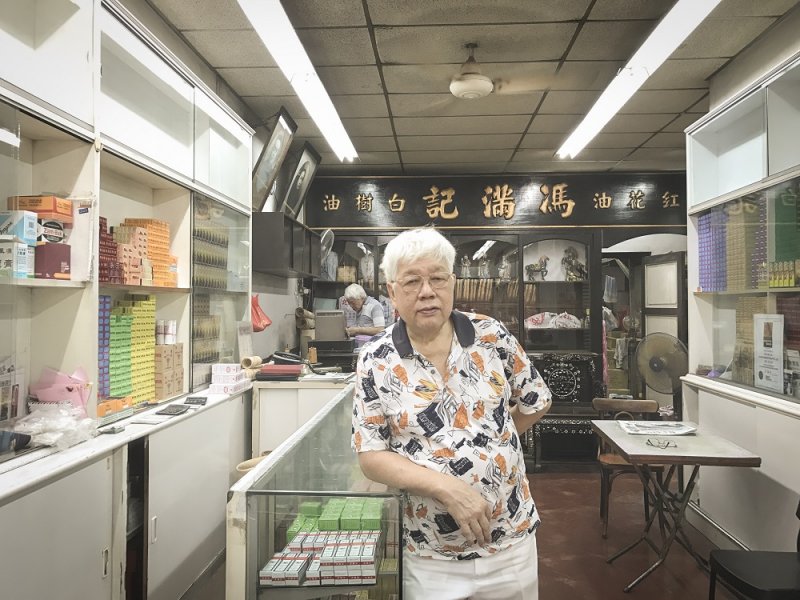
Founded in: 1908
What they do: Their great-grandfather started selling grass mattings in 1908 at the end of Smith Street, then later on, a collection of medicated oil. They have been providing relief for people with common ailments like headaches, cold and rheumatism.
“It’s hard to say now whether the next generation will take over, but we hope so. My nephews and nieces don’t seem to be interested in this. They prefer to play with the computer or go outside. This kind of work got a lot of minor things they have to do, and at times it’s quite heavy you know. It’s difficult to say (if the business will disappear after this generation) because this is supposed to be a dying trade, but with the influx of tourists, especially from China, it still survives.” – Mr Fong, in charge of sales in the shop
Nam’s Supplies (along Smith Street)
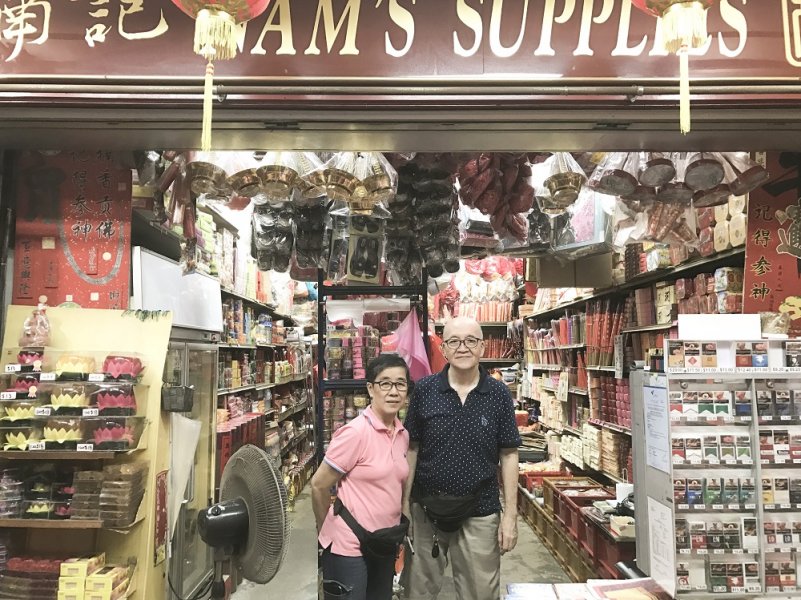
What they do: The shop has already accumulated their own regular customers over the past 80 years. Her husband’s grandfather started out with a convenience store, then later turned to selling joss sticks and paper products from Malaysia, Hong Kong and China.
“No one in Singapore handmakes the paper products. We import from other countries. My son is working in infocomm and marketing-related job, so he won’t be taking over the business. He is not interested in taking over, because the trade is dying and no one wants to continue it anymore. But he used joss stick as a topic for a school project, and he got an A for it (so I’m proud about it). I like to have people coming to my shop, and I explain to the tourists when they come and visit. This is what I can do, while the business is still here. Although some people now feel that burning the paper products causes haze and all, our ancestors started the tradition and pray to the deities so we need to respect the religious practice. We will keep doing this business until we die, not only to help cover our expenses but also to have something to rely on when we are old.” – Eng Soo Leng, 66, owns the shop with her husband
Teck Soon Medical Hall
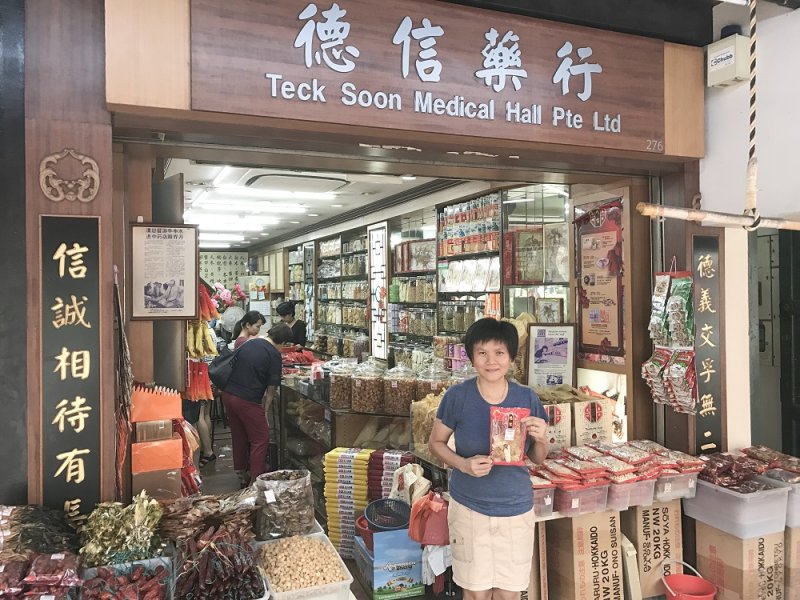
What they do: From humble beginnings of only half a shop to expanding to four branches, their father, Chow Chee Yik, started the business selling Chinese herbs and giving consultations for patients. Interestingly, he only learnt from reading relevant books and accumulated experience by practising, unlike now where Chinese doctors need to get a certificate to practice traditional Chinese medicine.
“I have been working in this shop for 30 years, ever since I graduated. My father used to bring us to the shop during our school holidays since we are young to help out with cutting the herbs and other related tasks. So this cultivated our interest for traditional Chinese medicine. My eldest sister, second eldest brother and his daughter are traditional Chinese physicians who give consultations at the shops. We hope that the next generation will be able to take over the business. Some of our next generation are helping out in the various shops, so we are actively cultivating their interest for the business. I hope our business will continue because there are very little shops like ours, selling Chinese herbs and focus on strengthening and treating illnesses for our patients. Chinatown has also changed a lot since last time, after setting up the ERP and the decrease in carpark spaces, our sales have dropped because people don’t find it convenient to work here”. – Anna Chow, 52, mans one of the four branches in Chinatown
Natural Sounds Record Co. (at the basement of People Park’s Center)
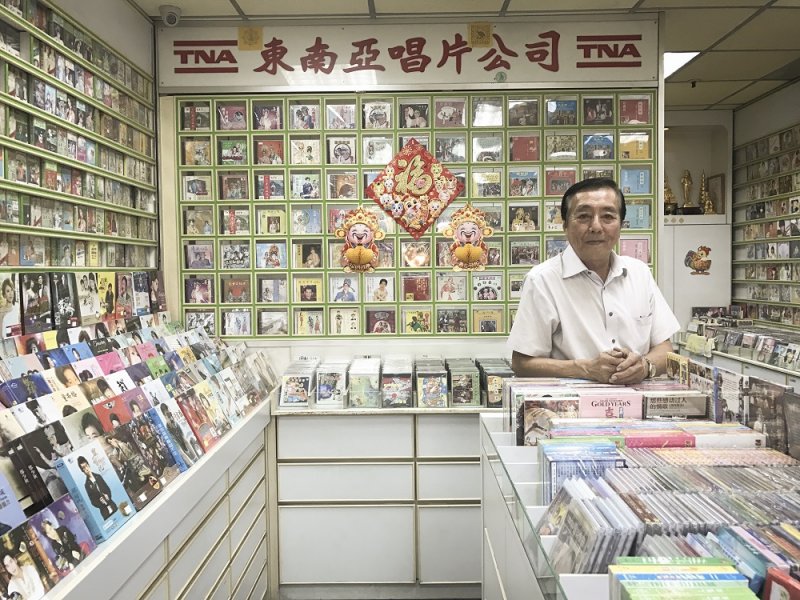
What they do: One of the last few remaining older record stores in Chinatown, Natural Sounds Record Store Co. started out as a record company that featured one half of a famous comedian duo from the 60s, Wang Sha (王沙). Besides producing CDs for their own artists, they also sell albums from other singers, karaoke casette tapes (now in CD, VCD and DVD format) and popular Cantonese and Teochew opera music.
“When I was 21 years old, I took over the business from my father. Now I see mostly older customers coming in to get CDs from us, since now that everyone is using their phones or going on YouTube to look for music. Maybe my trade used to be important but not anymore because no one will need CDs now. You can technically say that the albums you see here are limited edition because some of the record companies have already closed down and don’t be produce the CDs anymore. The next generation has ventured to their own other careers and is not interested to take over, so the shop will be gone after me. We just have to move on.” – Mr Quek, 60s, shop owner





